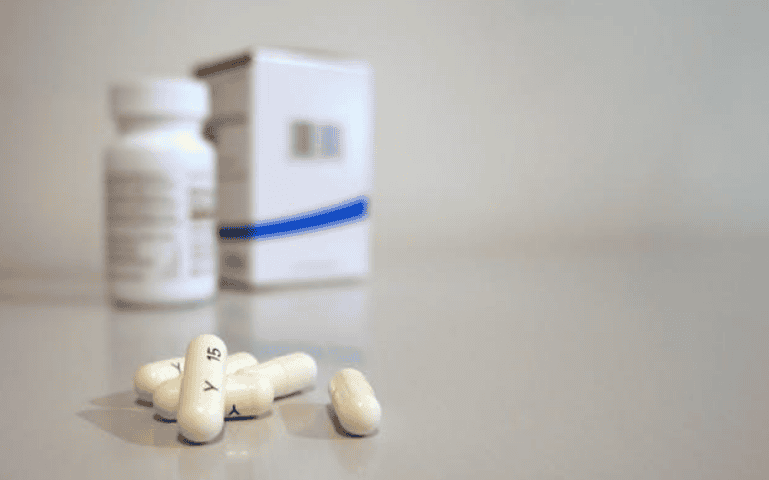Attention Deficit Hyperactivity Disorder (ADHD) is a neurodevelopmental condition affecting millions worldwide. It can impact focus, impulse control, and daily functioning, significantly influencing one’s quality of life. Effective treatment is crucial for managing symptoms and enhancing overall well-being. Common ADHD medications, such as stimulants like Adderall, are often prescribed to improve concentration and reduce hyperactivity.
However, it’s essential to understand ADHD medications and the risk of addiction. While these medications can provide significant benefits, they also carry potential risks that of individuals and caregivers must be aware of to ensure safe and responsible use.
On this post, let’s take a closer look at ADHD medications – the benefits they offer as well as the possible risk of addiction.
The Role of Medications in ADHD Management
ADHD medications are fundamental in managing symptoms effectively. Two main categories exist: stimulants and non-stimulants. Adderall and Ritalin, which are stimulants, are the most commonly prescribed. They work by increasing dopamine and norepinephrine levels in the brain, enhancing focus and attention while reducing impulsivity and hyperactivity.
Many individuals experience noticeable improvements in their daily functioning, allowing them to engage more fully in work, school, and social activities. Non-stimulant medications, like Strattera, offer alternatives for those who may not respond well to stimulants or prefer not to use them.
While they may not be as fast-acting, these medications still provide significant benefits in managing ADHD symptoms. Understanding the different types of medications is important for individuals and families navigating treatment options.
Each person’s response to medication can vary, so close monitoring and regular consultations with healthcare providers are necessary. This tailored approach ensures that the chosen medication aligns with the individual’s needs while minimizing potential side effects.

What You Need to Know about ADHD Medications and the Risk of Addiction
Understanding the risks associated with medications for ADHD is important for individuals and their families. While these medications can effectively improve focus and attention, they also carry the potential for addiction. Stimulant medications, in particular, are at a higher risk for misuse due to their stimulating effects.
Factors contributing to this risk include personal history, mental health conditions, and environmental influences. Some individuals may misuse medications to enhance performance, experience euphoria, or self-medicate underlying issues. Recognizing the signs of potential misuse is vital.
These signs may include taking larger doses than prescribed, using the medication without a prescription, or experiencing withdrawal symptoms when not using the drug. It’s essential to maintain open communication with healthcare providers about any concerns related to medication use.

Adderall: What to Know About This Popular Medication
Adderall is a widely prescribed medication for managing symptoms related to attention deficit hyperactivity disorder. It combines amphetamine and dextroamphetamine, which work by increasing the levels of certain neurotransmitters in the brain.
This boost helps enhance focus, attention, and impulse control, allowing individuals to function better in daily activities. Many users report significant improvements in productivity and quality of life. However, Adderall is not without its drawbacks.
According to WebMD, common side effects include insomnia, loss of appetite, anxiety, and nausea. While these effects can be manageable, the potential for misuse is a concern. Some individuals may take this drug without a prescription to experience heightened energy or focus, leading to a risk of dependency.
Of course, this situation can be solved with proper treatment for Adderall addiction, which is only possible with licensed medical professionals. People can avoid the need for this if everybody takes time to understand the appropriate use of Adderall. This is vital for maximizing its benefits while minimizing risks.
Understanding the Difference Between Misuse and Dependence
ADHD medications and the risk of addiction can be better understood by distinguishing between medication misuse and dependence. Misuse refers to taking a medication in a manner other than prescribed. This can include using someone else’s prescription or taking higher doses to achieve effects beyond what is intended.
For example, some individuals may misuse medications like Adderall to enhance focus or energy, even when they do not have a prescription. On the other hand, dependence develops when a person feels they need the medication to function normally. This can manifest through withdrawal symptoms when the medication is not taken or a compulsion to continue using it despite negative consequences.
Recognizing these distinctions is vital for anyone using medications for ADHD. Proper medication management involves regular communication with doctors. They can help monitor usage and identify any signs of misuse or dependence.
Mitigating the Risks of Addiction
Mitigating the risks of addiction with ADHD medications involves implementing effective strategies for safe medication use. One of the most important practices is maintaining open communication with healthcare providers.
Regular consultations help monitor the effectiveness of the medication and address any side effects or concerns that may arise. Providers can also adjust dosages as needed to minimize the risk of misuse. Another strategy is to explore therapies and special treatment.
A rehabilitation facility like Bright Futures Treatment Center effectively helps people and their families battle addiction through special treatment programs. With a dedicated and professional staff, recovery and happy life are not out of reach.
Non-stimulant medications, behavioral therapies, and lifestyle changes can complement or serve as substitutes for traditional medication. These alternatives may reduce the reliance on stimulants and help manage symptoms effectively.
Educating patients and families about the signs of misuse can further enhance safety. Being aware of these signs enables early intervention and support. Lastly, promoting adherence to prescribed treatment plans fosters responsible use of medications. This comprehensive approach helps individuals manage their symptoms while minimizing the potential for addiction.

Myths and Misconceptions
One common myth is that these medications are simply a way to control behavior rather than being necessary for managing symptoms. In reality, they help improve focus and impulse control, significantly enhancing daily functioning.
Another misconception is that medications are addictive and that all users will develop dependence. While misuse is a concern, many people use these medications responsibly under medical supervision without developing addiction issues.
Education is crucial in debunking these myths. Understanding the science behind these medications fosters informed discussions between patients, families, and healthcare providers. This knowledge can help dispel fears and reduce the stigma surrounding ADHD treatment.
Additionally, addressing misconceptions can empower individuals to seek the support they need without feeling judged. As more people become educated about ADHD medications, they can make better decisions about treatment options.
Final Words About ADHD medications
In summary, understanding ADHD medications and the risk of addiction is essential for anyone navigating treatment options. By debunking myths and addressing misconceptions, individuals and families can make informed decisions regarding medication use.
Strategies for safe medication practices, regular consultations with healthcare providers, and exploring alternative treatments are vital in mitigating risks. Education plays a significant role in reducing stigma and promoting a supportive environment for those affected.
Ultimately, a comprehensive understanding of the benefits and potential pitfalls of ADHD medications empowers individuals to manage their symptoms effectively while safeguarding against misuse and addiction.


